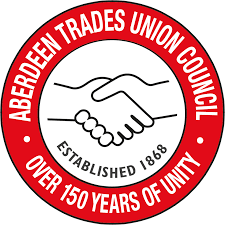Related Research Articles

The Scottish Trades Union Congress (STUC) is the national trade union centre in Scotland. With 40 affiliated unions as of 2020, the STUC represents over 540,000 trade unionists.
The Workers' Union was a general union based in the United Kingdom, but with some branches in other countries. During the 1910s, it was the largest general union in the UK, but it entered a rapid decline in the 1920s, and eventually became part of the Transport and General Workers' Union (TGWU).

The Queensland Council of Unions (QCU) is a representative, peak body of Queensland trade union organisations, also known as a labour council, in the Queensland, Australia. As of 2020, 26 unions and 13 regional branches were affiliated with the QCU. The QCU represents unions covering around 350,000 Queensland workers. It is affiliated with the Australian Council of Trade Unions (ACTU). Its offices are located in the suburb of South Brisbane, Queensland. As a peak body for the Queensland trade unions, the objective of the QCU is to achieve industrial, social and political justice for Queensland workers. The management structure of the QCU is made up of a committee of management and an executive of representatives comprised from affiliated unions.
A labour council, trades council or industrial council is an association of labour unions or union branches in a given area. Most commonly, they represent unions in a given geographical area, whether at the district, city, region, or provincial or state level. They may also be based on a particular industry rather than geographical area, as for example, in the Maritime Council of Australia which co-ordinated the waterfront and maritime unions involved in the 1890 Australian Maritime Dispute.
The Trades and Labor Congress of Canada was a Canada-wide central federation of trade unions from 1886 to 1956. It was founded at the initiative of the Toronto Trades and Labour Council and the Knights of Labor. It was the third attempt at a national labour federation to be formed in Canada: it succeeded the Canadian Labour Union which existed from 1873 to 1877 and the Canadian Labour Congress which held only one conference in 1881.
The Miners' Federation of Great Britain (MFGB) was established after a meeting of local mining trade unions in Newport, Wales in 1888. The federation was formed to represent and co-ordinate the affairs of local and regional miners' unions in England, Scotland and Wales whose associations remained largely autonomous. At its peak, the federation represented nearly one million workers. It was reorganised into the National Union of Mineworkers in 1945.
Community is a UK trade union which formed in 2004. The union represents workers in a diverse range of sectors, including iron and steel, domestic appliance manufacturing, clothing, textiles, footwear, road transport, betting and gaming and call centres, as well as workers in voluntary organisations, workshops for visually impaired and disabled people, community-care providers and housing associations. Although the former trade unions which amalgamated to form Community were all craft unions or industrial unions, Community is now a general union. Community has merged or transferred engagements with a number of smaller unions, some of which have become sections within Community. These include the National League of the Blind and Disabled (NLBD), the National Union of Domestic Appliance and General Operatives (NUDAGO), the National Union of Knitwear, Footwear & Apparel Trades (KFAT), the British Union of Social Work Employees (BUSWE), the Prison Service Union and the UFS.

The General Federation of Trade Unions (GFTU) is a national trade union centre in the United Kingdom. It has 35 affiliates with a membership of just over 214,000 and describes itself as the "federation for specialist unions".

Mary Reid Anderson was a Scottish suffragist and trades unionist. She was the general secretary of the Women's Trade Union League and was involved in the formation of the National Federation of Women Workers and National Anti-Sweating League. In 1910, Macarthur led the women chain makers of Cradley Heath to victory in their fight for a minimum wage and led a strike to force employers to implement the rise. About 1901, Macarthur became a trade unionist after hearing a speech made by John Turner about how badly some workers were being treated by their employers. Mary became secretary of the Ayr branch of the Shop Assistants' Union, and her interest in this union led to her work for the improvement of women's labour conditions. In 1902 Mary became friends with Margaret Bondfield who encouraged her to attend the union's national conference where Macarthur became the first woman to be elected to the union's national executive.

The Amalgamated Society of Boilermakers, Shipwrights, Blacksmiths and Structural Workers (ASB) was a trade union in the United Kingdom. Many of its members worked in shipbuilding, in which industry it was the leading trade union, while over time it also developed strength in engineering and construction.
The Engineering and Fastener Trade Union was a trade union based in the West Midlands of England.

The Irish Trades Union Congress (ITUC) was a union federation covering the island of Ireland.

The Confederation of Shipbuilding and Engineering Unions (CSEU), often known as the Confed is a trade union confederation in the United Kingdom.
The Amalgamated Society of Engineers (ASE) was a major British trade union, representing factory workers and mechanics.
The Amalgamated Society of Textile Workers and Kindred Trades (ASTWKT) was a trade union representing textile workers, principally silk manufacturing, in the United Kingdom.

The National Federation of Women Workers (NFWW) was a trade union in the United Kingdom active in the first part of the 20th century. Instrumental in winning women workers the right to a minimum wage for the first time, the NFWW broke down barriers for women's membership in trade unions in general.
The Chain Makers' and Strikers' Association (CMSA) was a trade union representing workers employed in the manufacture of chains in the United Kingdom, principally in the West Midlands.

Aberdeen Trades Union Council (ATUC) is the body made up of affiliated trade union branches and organisations working in the Aberdeen and Aberdeenshire area to promote the interests of workers in the region. The ATUC provides services to affiliated branches on a wide range of industrial, social and community issues and is affiliated to the STUC. It has an office based in Aberdeen, Scotland.
The Notts Trades Council, formally known as the Nottinghamshire Nottingham and Mansfield Trades Council, brings together trade unionists in Nottinghamshire, in England.
John Taylor was a British trade unionist and politician.
References
- 1 2 3 4 5 Taylor, Eric (1972). "THE MIDLAND COUNTIES TRADES FEDERATION 1886–1914". Midland History. 1 (3): 26–40.
- 1 2 Smethurst, John B.; Carter, Peter (June 2009). Historical Directory of Trade Unions. 6. Farnham: Ashgate Publishing. p. 242. ISBN 9780754666837.
- ↑ Wrigley, Chris (2009). "Trade unionists and the Labour Party in Britain: the bedrock of success". French Journal of British Studies. XV (2): 59–72.